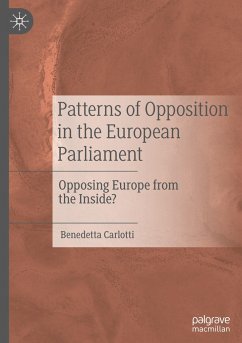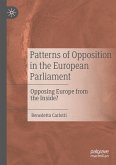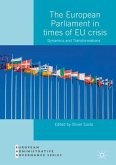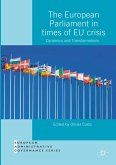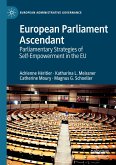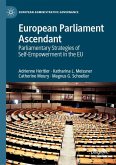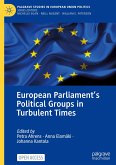Is Euroscepticism still suited to analyze the variegated nature of opposition to the EU? Starting from this question, this book critically reviews Euroscepticism, reconceptualizes it in terms of political opposition and discovers, disentangles and explains patterns of EU-opposition within the European Parliament (EP).
Distinguishing between "what the EU does" and "what the EU is", the research elaborates an index of parties' positioning "measuring" it through the speeches that parties' deliver in the EP. The EP is the "perfect laboratory" where decisions concerning EU-policies are taken and the future EU-trajectories are shaped.
Besides delineating a set of guidelines categorizing parties, the book concludes that their positioning varies along two main axes: the pro-anti-EU-system and the pro-anti-EU-establishment. From a normative perspective, the research argues for the growing importance of the "cumulation hypothesis": if criticism remains unheard within the European elitist construct, such criticism will transform itself into rejection.
Distinguishing between "what the EU does" and "what the EU is", the research elaborates an index of parties' positioning "measuring" it through the speeches that parties' deliver in the EP. The EP is the "perfect laboratory" where decisions concerning EU-policies are taken and the future EU-trajectories are shaped.
Besides delineating a set of guidelines categorizing parties, the book concludes that their positioning varies along two main axes: the pro-anti-EU-system and the pro-anti-EU-establishment. From a normative perspective, the research argues for the growing importance of the "cumulation hypothesis": if criticism remains unheard within the European elitist construct, such criticism will transform itself into rejection.
"The book presents a careful analysis of opposition in the European Parliament beyond the usual suspects. The meticulous operationalisation of EU-opposition and the comparison between EU-opponents and with mainstream parties is a clear strength of this book. Well-anchored in the comparative politics literature ... ." (Ariadna Ripoll Servent, Zeitschrift für Vergleichende Politikwissenschaft, Vol. 15 (3), October, 2021)

